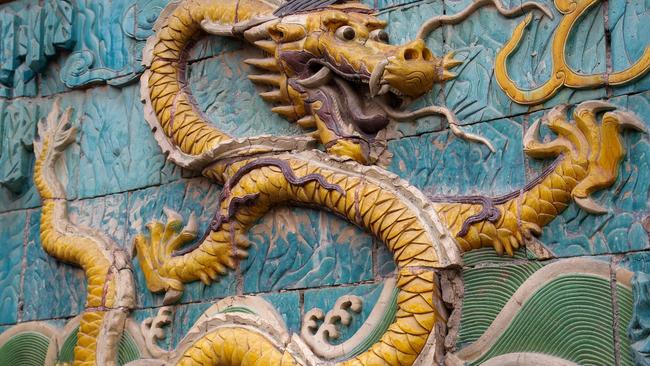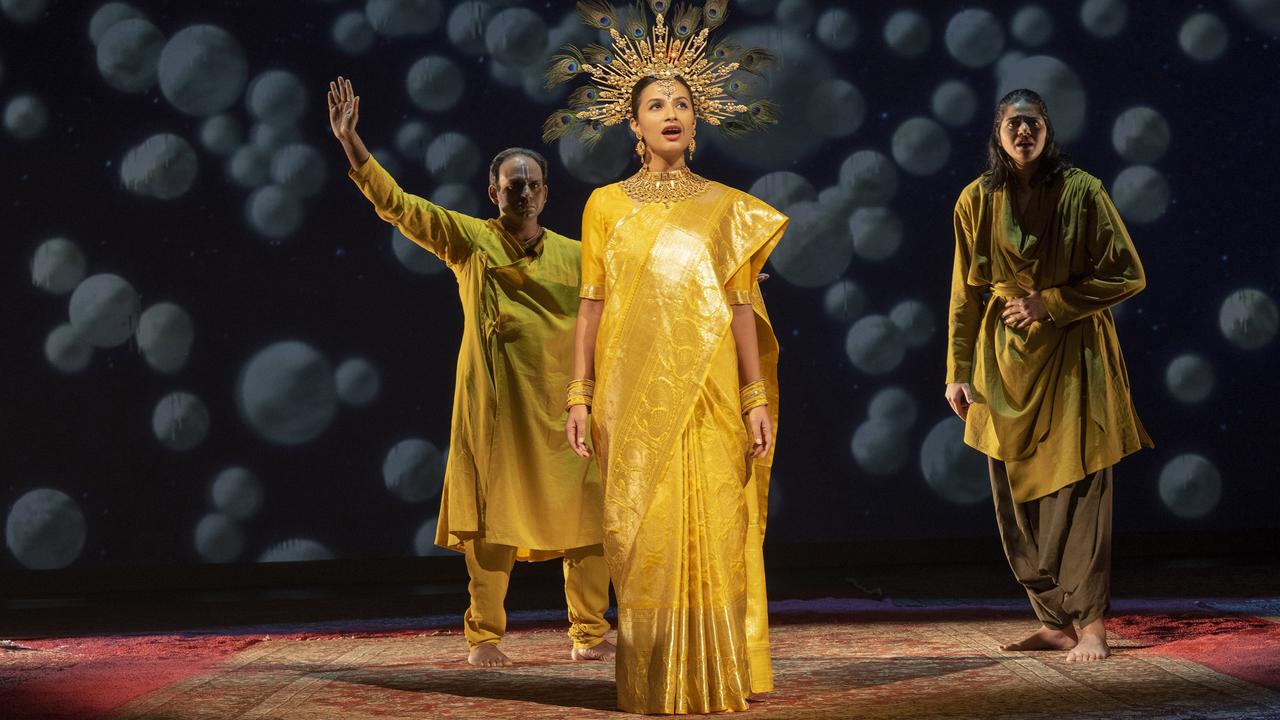Chinese classic I Ching undergoes new translation by David Hinton
A new translation of an ancient Chinese classic vibrates with the wonder and mystery of life.

It is a book of divination and wisdom that has been around for almost 3000 years. I Ching means Change Classic or The Book of Changes, as it has come to be called. Like the books of Annals, Rites and Odes it’s a pillar of ancient Chinese culture. Confucius is supposed to have contributed to it in the fifth century BC, but its text shadows back into the dragon myths and murmurings of prehistory.
English translations have been emerging since 1882, when the great Scottish Sinologist James Legge put out his version as volume XV of Muller’s Sacred Books of the Far East. Legge was no great fan of the I Ching: he described it as ‘‘a book of spells’’ and was unimpressed with its wisdoms. He preferred its Confucian aspect, where it has the gravitas of social and political purport. In such versions we read, for example, of what the ‘‘superior’’ or ‘‘virtuous’’ man might do in this or that circumstance, and the Way of Heaven is presented as a model of order meant to navigate chaos and error of many kinds.
At the same time, however — and this is the crucial thing about I Ching — it offered order not simply by evoking rules and regulations but by making an appeal to one’s shifting sense of inner truth. One consulted I Ching to source one’s capacity for self-knowledge, and, thereby, right attunement to the flux of things.
The world is always changing; I Ching is its object lesson. The task was to know how to best live with its native wisdom. Mystery there has to be, the I Ching assumes, such is our vast, barely comprehended cosmos. But with its help, what is incessantly coming and going, the birth and the death of the 10,000 things, might be intuitively grasped — providing one has a certain amount of courage, perseverance, patience, modesty and imagination.
The first 20th century I Ching to come into my hands was the 1923 version of Richard Wilhelm, rendered from the German into English by Cary F. Barnes in 1951. Five further editions arrived between 1968 and 1973 — those years of revolution, poetry and mystification. It was a handsome hardback in a black cover, and I used to keep mine besides another black book of the epoch, Ezra Pound’s Cantos.
Behind them was the stash of dope, the effects of which were enhanced whenever I read Pound’s bombastic ‘‘Chinese’’ stanzas, or the shrewd interpolations of I Ching by the psychoanalyst CG Jung in his celebrated introduction to the work of his friend Wilhelm. (I Ching has travelled far and wide since then: Allen Ginsberg wrote a poem about it, the Beatles sang of it, it turns up in Monty Python. All manner of floating minds have played it.)
Jung told us I Ching offered Westerners a ‘‘new way of thinking’’: beyond the linear ‘‘causalities’’ of ‘‘natural sciences’’ — something closer to notions of quantum physics, where the observer is implicated in objective ‘‘reality’’. Jung already had his own term for the dynamic experience of interrelated events: ‘‘synchronicity’’. He personalised the book and asked questions of it as an ‘‘animated being’’. Should he, for instance, write the introduction? Yes, the book said. Jung felt I Ching was a way of consulting his unconscious. Jung helped fill our room with smoke, but it did not smell like Chinese smoke.
With David Hinton the smoke is the real thing. The American poet and translator is one of our great translators of classical Chinese philosophy and poetry. His work with poetry is especially acclaimed for its freshness and accuracy, and the grammatical skill with which he seeks to render the enigmatic aspects of the Chinese language itself.
He seeks a Ching that exudes, you might say, the dragon breath of the ur-text. He eschews the layers of commentary that characterise so many other editions and offers a Taoist Ching, one energised by pregnantly beautiful poetics. One feels cleanly exposed, as it were, to the Taoist sense of elemental considerations prior to the invasion of Confucian ideals. It’s as if Hinton has rinsed away pedagogy to reveal a text as wondrous as amber.
All I Chings have the wondrous elements, of course. We face them as soon as we see the strange ‘‘language’’ of the text: the hexagrams, or the vital sets of six broken and unbroken lines that seem to have emerged from the mists of time (the original language of dragons, obviously, as ‘‘Root-Breath’’ was ‘‘our first ancestor’’, which Hinton delights in pointing out). Hinton calls them ‘‘graphs’’. Legge called them ‘‘essays’’ since everything depends on how we read their movements, having obtained them after our bids with chance — the throwing of yarrow sticks in ancient times, coins today.
The first hexagram (out of 64) has six straight lines and is called The Creative: it stands for Heaven, Yang, Father, the active mode. The second has six broken lines: The Receptive, Earth, Yin, Mother, Passivity … Thereafter the Yang and Yin are at play in various combinations. One does not exist without the other; one is always moving towards or away from the other, incessantly transforming within and without. I Ching thus begins at the point of origins, which Heaven and Earth create and re-create together. ‘‘In return itself, you can see the very heart-mind of all heaven and earth.’’
Simultaneously, the lines pertain to various elements of nature: fire, water, wood, lake, thunder and so on, each with their evocative names and attributes such as the abysmal/danger, the gentle/penetrating, the arousing/movement — which adds other layers of meaning, depending on the transformations characteristic of various lines. Attend to this well and the I Ching becomes a vessel for imaginatively mapping one’s position/drift/bearing in the shifting cosmos of the world and one’s experience of it.
Much depends on the quality of consciousness we bring to I Ching. We are at the mercy of the translator, except it seems to me Hinton does not so much seek power over the readers as offer them the gift of a poem — I Ching as an open, albeit mysterious, book arising from what he calls the ‘‘open grammar’’ of the Chinese language. It’s a vitalising prompt to mental and spiritual alertness. Hinton’s achievement is to invigorate the signs with startling freshness and beauty. Without subscribing to anything as stated as ‘‘Taoism’’, it’s possible to engage with this Ching as one might engage, say, with a work of art, piece of music, a prayer, one’s own silence.
You can feel this as soon as the key phrases of Hinton’s lean text are manifest. He calls the third hexagram Birth-Throe (Wilhelm has the lacklustre Difficulty at the Beginning). Hinton translates the opening lines: ‘‘All origins penetrating everywhere, birth-throe is inexhaustible in bringing forth wild bounty.
Still, nothing happening: that is where you set forth. Trusting sage advisors brings forth wild bounty.’’
Hinton uses ‘‘wild bounty’’ throughout. The phrase alone transmits the fecundity at the heart of things, just as ‘‘no bounty’’ is perfect for the hexagrams that signal what is not forthcoming. Sometimes Hinton does not depart from the standard versions in English: he is not driven by a modernist reflex to make everything new. But invariably his imagery leaps up: Work On What Has Been Spoiled in Wilhelm becomes Maggot Bowl in Hinton.
Hinton makes the Ching vibrate. There’s never a reason not to read on, just as there is never a reason to fixate on the words. As Hinton tells us in hexagram 47, Lake over Water, Exhaustion: ‘‘When there’s talk, there’s no sincerity, no accuracy. Revere words, and you soon wither impoverished away.’’
The 13-page introduction alone is worth getting the book for. Hinton says he wants his translation of the I Ching to come forth as a great generative poem, to be a ‘‘literary Ching’’. It is: a brilliant summonsing of what he calls — with a mind to artists and monks and writers and the common reader — our ‘‘spirit centres’’.
Barry Hill’s latest book is the poetry collection Grass Hut Work.
I Ching: The Book of Changes
Translated by David Hinton
Farrar Straus Giroux, 160pp, $39.99 (HB)


